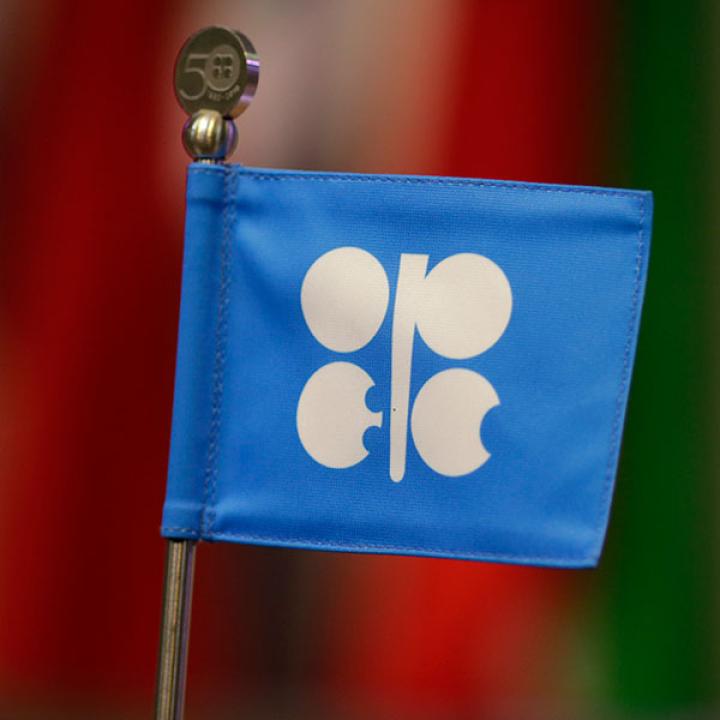
- Policy Analysis
- Policy Alert
OPEC Meeting Is More About Regional Rivalry Than Production Cuts

Saudi Arabia's reluctance to show weakness toward Iran likely means no real agreement will result from this week's OPEC meeting.
Media commentary in advance of the November 30 meeting of OPEC oil ministers in Vienna has concentrated on whether an understanding to cut production achieved in Algiers in September can be formalized. Such an agreement would have the effect of boosting prices, which have struggled to remain above the $50-per-barrel mark, leading to low revenues and forcing painful cutbacks in the budgets of OPEC members.
The regional rivals Saudi Arabia and Iran appear determined not to give any advantage to the other in either political or economic terms. Riyadh views Tehran as a troublemaker because of its support for Bashar al-Assad's regime in Syria and for arming the Houthi rebels in Yemen who control the capital, Sana, and much of the northern part of the country. Tehran would be happy to undermine Riyadh's relations with Washington and thus supplant the United States as the region's most powerful political force.
As the world's largest oil exporter, Saudi Arabia is the key player in international oil markets. For any agreement to have an impact, the kingdom would need to make the largest cuts in its production. Whether prices would rise sufficiently to offset the revenue loss is a moot point. At the very least, Saudi Arabia would need full cooperation from other major OPEC producers like Iran and Iraq. Irritatingly for Riyadh, Tehran is claiming it needs to maintain output to help it recover from sanctions and Baghdad says it needs maximum revenues to continue fighting the Islamic State.
Outside OPEC, Russia, the world's largest producer of oil, also effectively has a vote and, at odds with Saudi Arabia over Syria, may use it capriciously. Furthermore, U.S. shale producers, most of which have survived despite relatively high production costs when the price fell into the $20-30 range in January, will be eager to take advantage of any higher prices, thereby undermining any accord reached in Vienna.
OPEC meetings used to be dominated by oil personalities like Saudi minister Ali al-Naimi, but he was fired in May, the apparent victim of the policy failure to retain market share while the oil price was falling. (He has just published a book in which he claims his policy will turn out to be right.) Naimi's replacement, Khalid al-Falih, is a less powerful player, overshadowed by Saudi deputy crown prince Muhammad bin Salman, King Salman's thirty-one-year-old favorite son. MbS, as he is known, is trying to move the kingdom into a post-oil future, known grandly as Vision 2030. As defense minister, he is also trying to win the war in Yemen, now at a territorial stalemate, where he considers his proxy adversary to be Iran.
In the last few days, King Salman has been visiting the Eastern Province, along the Persian Gulf coast, where the kingdom's oil reserves and export facilities are concentrated -- and where Saudi Arabia's Shiite minority, coreligionists of most Iranians, forms a local majority. The king has been inaugurating oil projects as well as meeting local dignitaries, including, in an apparent gesture of inclusiveness, Shiite clerics. Just as significant, perhaps, was the meeting MbS held in the local city of al-Khobar with U.S. Navy secretary Ray Mabus, himself a onetime American ambassador in Riyadh. Among probable discussion points was the Iranian announcement that Tehran intended to establish naval bases in Yemen and Syria, which would be a challenge to both the kingdom and the U.S. Navy. Mabus may have also urged MbS not to see Iran and Iraq as sharing the same perspective on oil.
In such circumstances, an OPEC agreement looks unlikely. While perhaps preparing the narrative on November 27, Oil Minister Falih said he thought the oil market would return to balance in 2017 even without production cuts. Whether he is justifiably optimistic or merely bluffing, the key decisionmaker this week will not be any of the oil ministers in Vienna but rather, once again, the Saudi deputy crown prince, MbS.
Simon Henderson is the Baker Fellow and director of the Gulf and Energy Policy Program at The Washington Institute.



